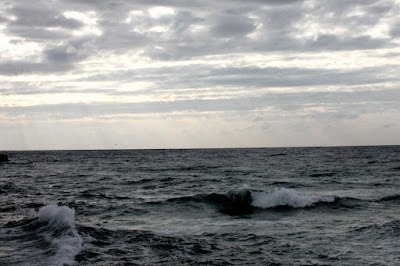Israelis Worried About International Image
Israel is viewed in a harsh light recently with the media accusing the country or actually it's leaders, in not cooperating to come to a peace agreement with the Palestinians. President Obama is being betrayed as the proverbial "bad guy", at least here in Israel. After receiving a Nobel Peace Prize (some say prematurely), Obama is said to be pushing hard for an agreement between Israel and the Palestinians. This situation does not bother Israelis. Plenty of leaders from the time the state was founder in 1948 and even before have tried to make Israelis and Palestinians to stop fighting. The ones who succeeded, Carter and Clinton, were not necessarily great international statesmen, but they somehow got the leaders of the two sides to stop for a moment, shake hands and sign an agreement.
Israelis have a different problem: THE MEDIA! Israelis are very much connected to international media. Newspaper, magazine, TV, radio and Internet news are on here all the time. Israelis consume news and current events from international channels more than local channels. To some what CNN, BBC, Al Jazeera and Pravda says is more important than what the Israeli government says. Israelis feel horrible when the country's leaders are blamed for being war mongers and insensitive to Palestinian needs.
In general Israelis do not seem to hate or complain about Palestinians. Maybe because of the media, Israelis do not like Palestinian leaders. Maybe due to international media, Nasrallah and Haniah are more feared than the Palestinian people. Israelis also do not exactly understand why the Palestinian people themselves have not done better since 1948 and 1967. This is specially in light of the Palestinian people's ability in many areas. To some extend Israel is to blame for the situation in the Palestinian Authority lands, but most still wonder why Palestinian workers can build wonderful buildings in Israel and there have not been one new modern city built by Palestinians for themselves. These are just some of the difficulties Israelis and Palestinians have in understanding each other.
Back to worrying about Israel's international image. Israelis compare our situation and our history to other countries. While Israel has held higher moral standards by all measures, very little of this is taken into account. Here are a few facts about Israel's situation and standards:
- Israel is one of the only democracies out of most countries who gained independence the last century: there has never been a revolt, a coup de tat or a non-peaceful change of government.
- Israel has the most open freedom of press policies especially compared to middle-eastern countries and countries in a state of war.
- Israel has one of the most secure and peaceful internal environment with very little crime and minuscule level of hard crime.
- The country has a proud legal history and compared to most countries one of the most honest and transparent legal system.
- There is very little corruption and the state police and military are rarely accused of wrong doing.
These are just a few of the qualities Israelis bring up when accused of all kind of crimes against Palestinians. The high moral standards are also talked about when Israeli leaders are accused of crimes against Palestinians. When a British judge issued an arrest warrant against Tzipi Livni for accusations of war crimes for involvement during the second Lebanon war (she served as a secretary of state in Ehud Olmert's cabinet) most people here were not angry as much as puzzled. Clearly Livni was not an extremist and did not deserve such an isolate treatment, if you want someone go after Amir Peretz who was the secretary of defense or Ehud Olment. That affair embarrassed the British government to no end. But it also showed how the British legal system can reach beyond it's borders and create a horrific situation in Israeli citizen eyes.
Israelis are not naive to believe in great changes with the international media reporting. After all, these are organizations which report on what they can in the best way they can. By that I mean, very little can be said about the government of Myanmar (Burma) and the freedom of speech there. The same is true for all the civil wars in Africa. Or the clear abuse of freedoms in the last election in Iran. The world expects Burmas, Africans and Iranians to abuse human rights, fix elections and slaughter themselves; which in turn, most governments, including the British legal system, is not going to spend energy and resources going after Burman, Iranian or African leaders or accusing them of war crimes. But Israelis do expect private citizens, bloggers, government officials and even state leaders to chime-in once in a while. Very few British members of parliament went on record even to point out that one British judge does not represent the British people or it's government. This only occurred after many back and forth accusations on both side.
Well, I usually do not like to comment on political events and international affairs. There is plenty of that buzz on the Internet and thousands of bloggers buzz back and forth incessantly. Hopefully this article will shed some light on how Israelis feel about the international media. We do not have a perfect society but it is better than most. We also try hard to keep high moral standards, and do not like to be accused falsely. Which by itself is a great achievement.
 Stormy waters for Israel's image in the international media. Israelis care more about their image than anything else, but very little is done / © 2010
Stormy waters for Israel's image in the international media. Israelis care more about their image than anything else, but very little is done / © 2010
Comments